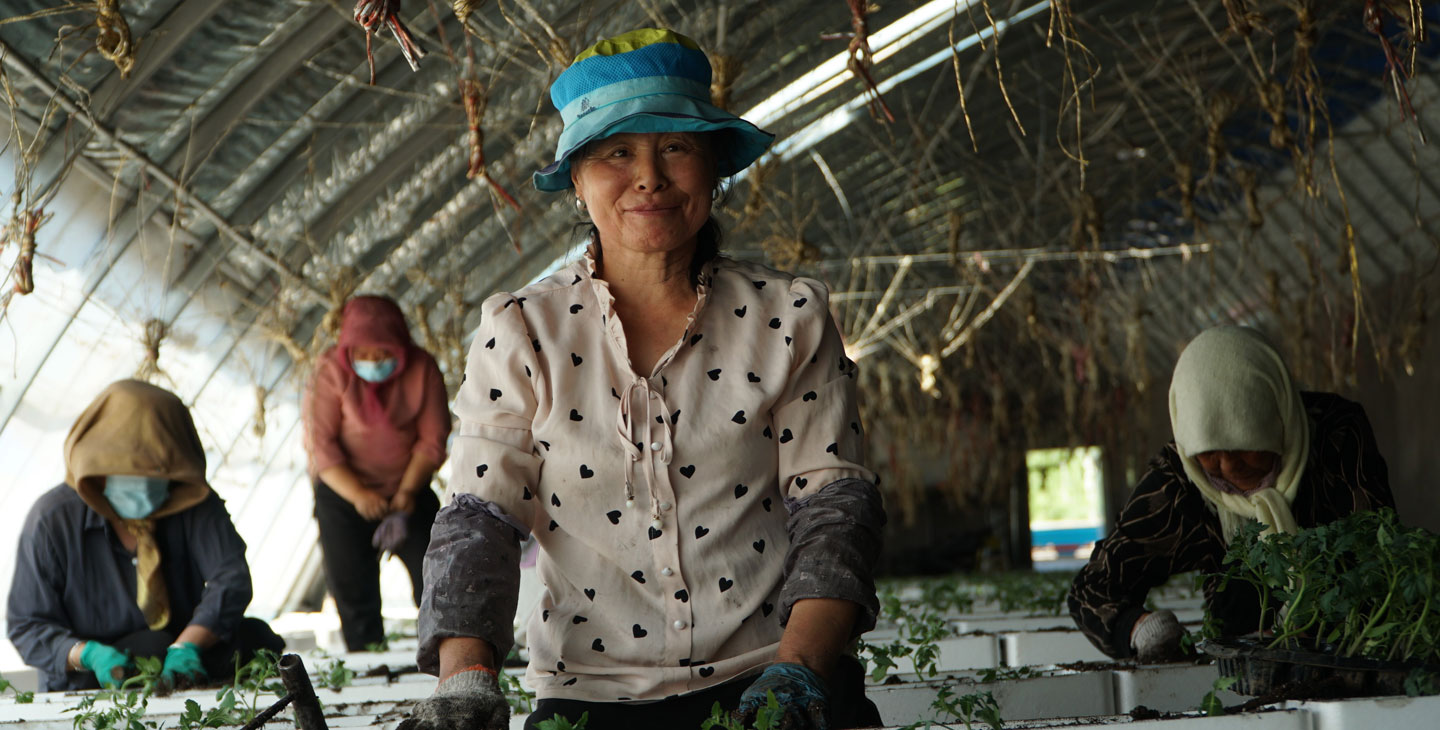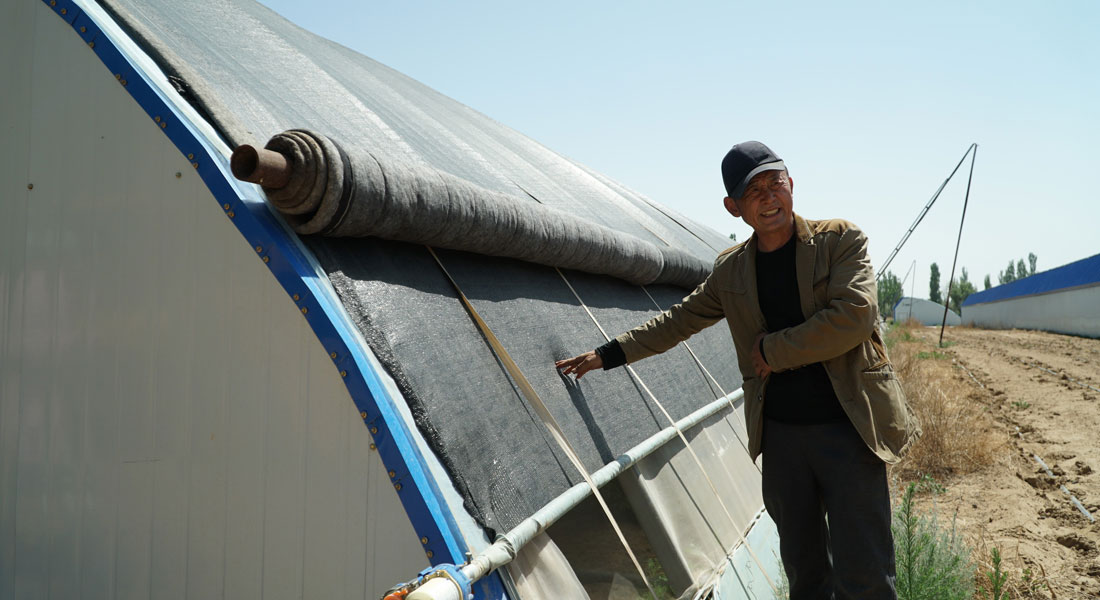In rural China, greenhouses bring new life to the desert
IFAD Asset Request Portlet
Asset Publisher
In rural China, greenhouses bring new life to the desert
Estimated reading time: 2 minutes
Growing food is a challenge in the harsh desert landscape of northwestern China. But along the shores of Yueya Lake, one village is bursting with fruits, vegetables and mushrooms.
Here in Yueya Lake Village, a new cooperative is changing lives by building greenhouses, enabling local people to grow and sell fresh produce year-round.
With livelihoods transformed, this remote rural area is blossoming – and as it grows more prosperous, villagers that once emigrated to nearby towns are returning.
Farmers’ organizations promote prosperity
Until recently, poverty around Yueya Lake was widespread and most young people felt they had no choice but to leave in search of a better life.
But in 2020, the Yueya Agronomy Cooperative was created with the support of the Innovative Poverty Reduction Programme, co-financed by IFAD and the regional government.
Since then, nearly two dozen greenhouses have been built in the village, significantly boosting agricultural output and providing employment for local people. Moreover, by renting village land on which to build them, the cooperative is generating additional income for residents and further stimulating the local economy.
The cooperative also enables its more than 70 members to share their experiences, exchange knowledge and participate in regular trainings, including on how to build the greenhouses and how to use new farming methods like hydroponics.
Expanding opportunities for rural women
With village men mainly employed in nearby urban areas, the greenhouses’ workforce is dominated by women. For most of them, it's their first paid job – and because it's on their own land, they are also able to manage their responsibilities at home.
"I can work on my own land while earning rent, in addition to my wage – at least 120 yuan [around US$17] per day,” says 60-year-old Yan Yingfang.
“I can walk home in just a few minutes, so I can balance the time I spend doing agricultural work with the time I spend taking care of my grandchildren.”
 |
| Yan Yingfang works as a contract laborer in one of the IFAD-funded greenhouses in Yueya Lake Village. © Qi Guochang |
A community transformed
The Yueya Agronomy Cooperative is led by Su Zhiyu, a 58-year-old farmer who has lived and worked in the village for decades – and has seen his home drastically transformed.
"There used to be a big desert here,” he recalls. “The conditions were so poor that we hardly had basic kitchen tools.”
Since the project began, annual per capita income has risen by almost 7 per cent, placing it above the regional rural average.
In fact, Yueya Lake Village today finds itself at the center of Ningxia region's rural revitalization, attracting migrants from across China and serving as a major hub for agriculture and poverty alleviation.
 |
| Su Zhiyu, the director of the Yueya Agronomy Cooperative, has lived and worked in Yueya Lake Village for over 30 years. © Qi Guochang |
Building rural futures
For the men and women of Yueya Lake Village, the greenhouses aren't just a production base – they're an investment in the future. By offering training for new farmers here, they hope to attract more young people to return to their rural roots.
“I hope I can recruit my son back to the village to fill my shoes,” says Zhiyu. “Thanks to diligent people, we can gain wealth on this otherwise barren land."
Publication date: 30 January 2024